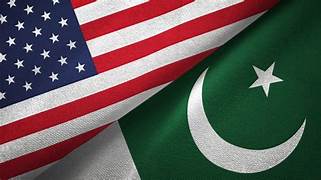
As US-Pakistan Ties Improve, Iran and China Emerge as Key Challenges

 :
| Updated On: 20-Jun-2025 @ 11:50 am
:
| Updated On: 20-Jun-2025 @ 11:50 amSHARE
Pakistan’s army chief, Field Marshal Asim Munir, held an unprecedented and extended one-on-one meeting with U.S. President Donald Trump at the White House, marking a significant moment in the evolving relationship between Washington and Islamabad. According to a statement by Pakistan’s Inter-Services Public Relations (ISPR), the meeting, initially scheduled for one hour, lasted over two hours. It began in the Cabinet Room over lunch and continued in the Oval Office. The private nature of the meeting—held behind closed doors without media coverage—reflected the seriousness and confidentiality of the discussions.
This rare high-level interaction occurred against the backdrop of strained ties in recent years between the two countries. However, the tone of this meeting appeared warm and constructive. Munir expressed “deep appreciation” for Trump’s efforts in helping mediate a ceasefire between India and Pakistan following a four-day military conflict in May. The skirmish, involving two nuclear-armed neighbours, had heightened regional tensions, and Trump’s role was reportedly instrumental in de-escalation efforts.
While the White House issued no formal statement, Trump briefly addressed reporters afterward, expressing his gratitude and saying he was “honoured” to meet Munir. He also acknowledged Pakistan’s cooperation in counterterrorism efforts, a long-standing point of both collaboration and contention between the two nations.
Despite the apparent goodwill, Trump also raised the issue of the ongoing military conflict between Israel and Iran. He hinted that the U.S. might get involved in the conflict and noted Pakistan’s unique position, saying, “They [Pakistanis] know Iran very well, better than most.” This comment pointed to Pakistan’s diplomatic and geographic proximity to Iran, as well as historical ties between the two countries. Trump also noted that the Pakistanis are “not happy,” possibly referring to Islamabad’s concern about a wider regional war.
Analysts believe Trump’s comments and the broader discussions highlighted two major diplomatic challenges Pakistan faces as it seeks to reset its ties with the United States. The first is navigating the escalating Iran-Israel conflict without compromising its own strategic interests or regional relationships. The second is managing its close economic and defense ties with China, which increasingly place Pakistan in a delicate position amid U.S.-China tensions.
During the meeting, Munir and Trump reportedly discussed a wide range of topics for bilateral cooperation. According to ISPR, these included economic development, mining, artificial intelligence, energy, cryptocurrency, and emerging technologies—areas where both sides see mutual benefit and growth potential. Such engagement signals Pakistan’s desire to diversify its international partnerships and align more closely with global technological and economic trends.
Munir was accompanied by Pakistan’s National Security Adviser, Lieutenant General Asim Malik, who also heads the country’s powerful intelligence agency, the Inter-Services Intelligence (ISI). His presence further emphasized the importance of the meeting, particularly regarding security and intelligence cooperation.
In summary, the meeting between Munir and Trump could mark a turning point in U.S.-Pakistan relations, but it also underscores the complex geopolitical landscape Pakistan must navigate—balancing its strategic ties with China, managing regional tensions with Iran, and responding to shifting U.S. foreign policy priorities.